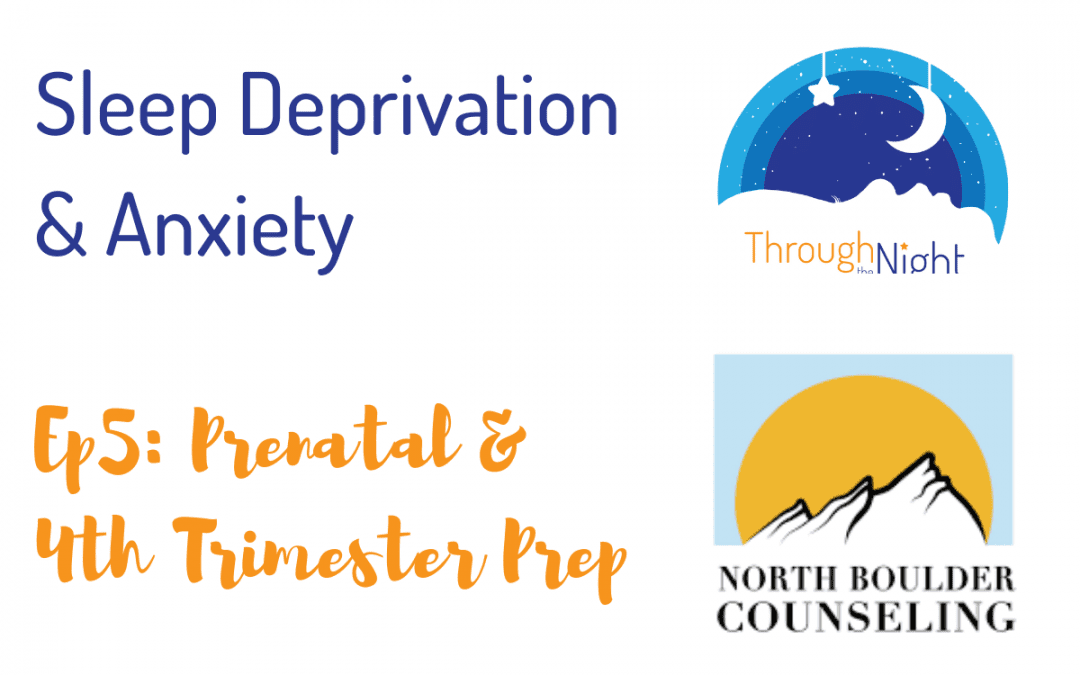“When we have less anxiety, when we have less depression, when we are more integrated in all the parts of our experience…we have better relationships and we’re all more together and we’re less isolated and the world is just better when we’re together.” – Gen Morley, M.A., L.P.C., North Boulder Counseling
Today’s episode is about preparing for mental wellness & health in the prenatal and postpartum period.
Families grow through pregnancy, marriage, adoption, surrogacy, foster care, and other ways. Gen Morley, therapist from Boulder, joins me again to discuss different ways to manage anxiety and prepare for the transition before a child joins your family.
Click on the video image below to hear us discuss:
1 – Possible feelings of grief about all the loss or changes in identity that happen (self, relationships, independence), including “unbecoming” a single adult (or a one child family)
2 – Managing the unknown about the future (it’s not all cute tiny socks)
3 – Discovering the richness of the new identities as things unfold
4 – What it might be like to experience infertility while planning for a pregnancy
My biggest advice for preparing for SLEEP in the fourth trimester (immediately postpartum):
1 – Learn a little bit about baby sleep now. You don’t need to read any 500 page books; however, get a resource that helps you understand generalities about how baby sleep is fundamentally different than adults. Check out the Baby Sleep Cheatsheet as a first step.
2 – Set expectations low for the baby’s length of sleep and YOUR housework, work, productivity amounts. It’s ok and good to do less.
3 – Set boundaries and only allow those in your space that are helpful and have good energy. You don’t need to “entertain” folx during your first months of parenthood. Instead of having people hold the baby, ask them to walk the dog, do chores, bring food, etc. Gen suggests making a list of things people can do to help and leave it on the fridge.
4 – You cannot spoil newborns and babies in the first few months. They will be eating and sleeping on a 24 hour clock until 3 months old when they develop a circadian rhythm. Snuggle and feed a lot, don’t be attached to the idea of them sleeping only at night or eating only during the day.
5 – Learn the “5 Hour Strategy” so that you and your partner can trade off and get rest. Check out Episode 1 to hear it.
Fourth trimester mental health looks a variety of ways:
1 – Talk to your partner, or person you are raising your child with ahead of time that there will be a transition. It might look like grief, hormones, transition, anxiety, etc. Ask them to help you “sit on the waves” as they come and support you.
2 – Set yourself up with a therapist and a circle of support. Find a great therapist with whom you feel comfortable talking, someone who will sit in your inner circle.
3 – Understand that the “4th trimester” is a period that is sometimes overlooked. A life raft of “it won’t always be this hard” and “things improve quickly” can be your mantra.
Check out the Local Denver Resource List to build your circle of support : chiropractors, breastfeeding support (IBCLC), therapists, etc.
Contact Gen at: https://northbouldercounseling.com/
Contact Sarah at: https://throughthenightmethod.com/

